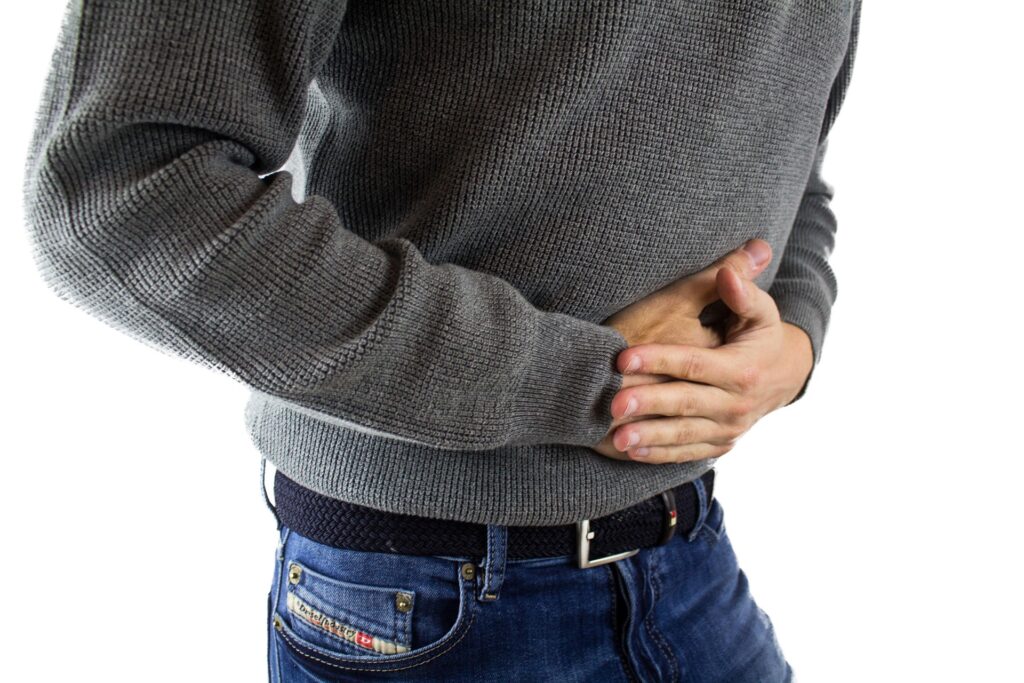Abdominal Pain

Hello! We all know how excruciating stomach pain can be. Sometimes it’s only slightly, but sometimes it’s fast enough to leave one in agony. Abdominal pain can be caused by a variety of factors, and treatment for each cause is also different. Today, we will learn the types, causes, and warning signs of abdominal pain, so that we can get the right treatment at the right time.
Types of abdominal pain:
There are many types of abdominal pain, and each type has a different cause. Here are some common types:
- Acute Pain: It starts suddenly and is very sharp. It can sometimes be a sign of a serious illness, such as appendicitis, gallstones, or stomach ulcers.
- Chronic Pain: This pain lasts for a long time, and is sometimes slight or mild. It can be a sign of illnesses like irritable bowel syndrome (IBS), constipation, or abdominal gas.
- Twisting Pain (Cramping Pain): This pain feels like cramping in the stomach, and is sometimes caused by intestinal gas or constipation.
- Burning Pain: This pain feels like a burning sensation in the stomach, and is sometimes caused by acid reflux or a stomach ulcer.
- Pain of heaviness (Dull Ache): This pain feels like a heaviness in the stomach, and is sometimes caused by constipation or gas.
- Localized Pain: Pain that is confined to a specific area of the abdomen, such as pain on the right side, may be a sign of appendicitis.
- Radiating Pain: This pain starts in one area of the abdomen and radiates to another, such as gallstone pain that can radiate to the back.
Causes of abdominal pain:
Abdominal pain can have many causes, and the treatment for each cause is different. Here are some common reasons:
- Appendicitis: It is caused by inflammation of the appendix, and sharp pain on the right side.
- Gallstones: It is caused by stones in the gallbladder, and pain in the upper right side.
- Stomach Ulcer: It is caused by a wound in the lining of the stomach, and causes burning pain.
- Irritable Bowel Syndrome (IBS): This is caused by an intestinal problem, and causes twitching pain, gas, and constipation.
- Constipation: It is caused by stool retention in the intestines, and feeling of heaviness.
- Gas: This is caused by the formation of gas in the intestines, and the pain of twitching.
- Food Poisoning: This is caused by eating contaminated food, and causes vomiting, diarrhea, and abdominal pain.
- Menstruation: Women may experience abdominal pain during menstruation.
- Kidney stones: It is caused by stones in the kidneys, and is a sharp pain radiating from the back to the abdomen.
- Urinary tract infection (UTI): This is caused by an infection in the urinary tract, and pain in the lower abdomen.
- Hernia (Hernia): A weakness in the abdominal wall can cause pain as part of the intestines protrude.
- Intestinal obstruction (Bowel Obstruction): A blockage in the intestines can cause sharp pain, vomiting, and constipation.
- Pancreatitis (Pancreatitis): Inflammation of the pancreas can cause sharp pain.
Warning signs of abdominal pain:
Sometimes abdominal pain can be a sign of a serious illness, and it is important to see a doctor right away. Here are some of the danger signs:
- Sharp pain that gradually worsens: This may be a sign of appendicitis or gallstones.
- Bloody vomit or blood in the stool: This can be a sign of a stomach ulcer or intestinal bleeding.
- High fever: This can be a sign of infection.
- Shortness of breath: This could be a sign of a chest infection or heart problem.
- Yellow skin or eyes: This can be a sign of liver problems.
- Fainting: This can be a sign of serious illness.
- Abdominal bloating and sharp pain to touch: May indicate intestinal obstruction or peritonitis.
- Sharp abdominal pain in a pregnant woman: May indicate an ectopic pregnancy or other serious problem.
- Sharp abdominal pain in older man: May be a sign of decreased blood flow to the intestines or other serious problem.
Stomach pain treatment:
Treatment for abdominal pain depends on the cause. Sometimes home remedies can provide relief, but sometimes it is necessary to see a doctor
- Relax.
- Sip hot water.
- Eat light meals.
- Drink more water.
- Take painkillers.
- Doctor’s treatment:
- The doctor will determine the cause and treat it correctly.
- Sometimes surgery may be required.
Prevention
Here are a few things to keep in mind to prevent stomach pain:
- Eat healthy food.
- Exercise regularly.
- Stay away from stress.
- Drink plenty of water.
- The doctor showed up on time.
- Stay away from smoking and alcohol.
Conclusion:
Stomach pain is a common problem, but sometimes it can be a sign of a serious illness. If you experience sharp or persistent pain, or notice any of the danger signs, see a doctor immediately. By getting the right treatment at the right time, you can stay healthy.
Frequently Asked Questions
Question 1: How many types of abdominal pain are there?
Answer: There are many types of abdominal pain, such as sharp pain, constant pain, twitching pain, burning pain, heaviness pain, location-specific pain, and diffuse pain. The cause of each type of suffering is also different.
Question 2: What are the common causes of abdominal pain?
Answer: Abdominal pain can have many causes, such as appendicitis, gallstones, stomach ulcers, irritable bowel syndrome (IBS), constipation, gas, food poisoning, menstruation, kidney stones, urinary tract infection (UTI), intestinal hernia, and pancreatitis.
Question 3: What are the warning signs of abdominal pain?
Answer: Here are some of the danger signs of abdominal pain:
- Sharp pain that gradually increases.
- Bloody vomit or blood in the stool.
- High fever.
- Difficulty breathing.
- Yellow skin or eyes.
- Anesthesia.
- Abdominal bloating and sharp pain on touch.
- Acute abdominal pain in a pregnant woman.
- Rapid abdominal pain in the elderly man.
Question 4: What is the treatment for abdominal pain?
Answer: Treatment for abdominal pain depends on the cause. Sometimes home remedies can provide relief, but sometimes it is necessary to see a doctor. Home treatments include rest, warm showers, eating light food, drinking plenty of water, and taking pain relievers. The doctor will determine the cause and treat it correctly, and sometimes surgery may be required.
Question 5: What should I do to prevent abdominal pain?
Answer: There are a few things to keep in mind to prevent abdominal pain:
- Eat healthy food.
- Exercise regularly.
- Stay away from stress.
- Drink plenty of water.
- The doctor showed up on time.
- Stay away from smoking and alcohol।
Question 6: What is appendicitis and what are its symptoms?
Answer: Appendicitis is an inflammation of the appendix. Its symptoms include sharp pain on the right side, fever, vomiting, and loss of appetite.
Question 7: What are gallstones and what are the symptoms?
Answer: Gallstones are caused by stones in the gallbladder. Its symptoms include pain in the upper right side, pain radiating to the back, vomiting, and fever.
Question 8: What is irritable bowel syndrome (IBS) and what are its symptoms?
Answer: Irritable bowel syndrome (IBS) is a problem with the intestines. Its symptoms include cramping pain, gas, constipation, and diarrhea.
Question 9: When should I see a doctor for abdominal pain?
Answer: If you have sharp or persistent pain, or notice any danger signs, see a doctor immediately.
Question 10: How effective are home remedies in abdominal pain?
Answer: Sometimes mild stomach pain can be cured by home remedies, such as sipping warm water, resting, or eating a light meal. But, if the pain is sharp or persistent, it is important to consult a doctor.
Disclaimer:
This information is for general knowledge only and should not be taken as medical advice. If you have abdominal pain or any other health problem, please consult a qualified physician.
